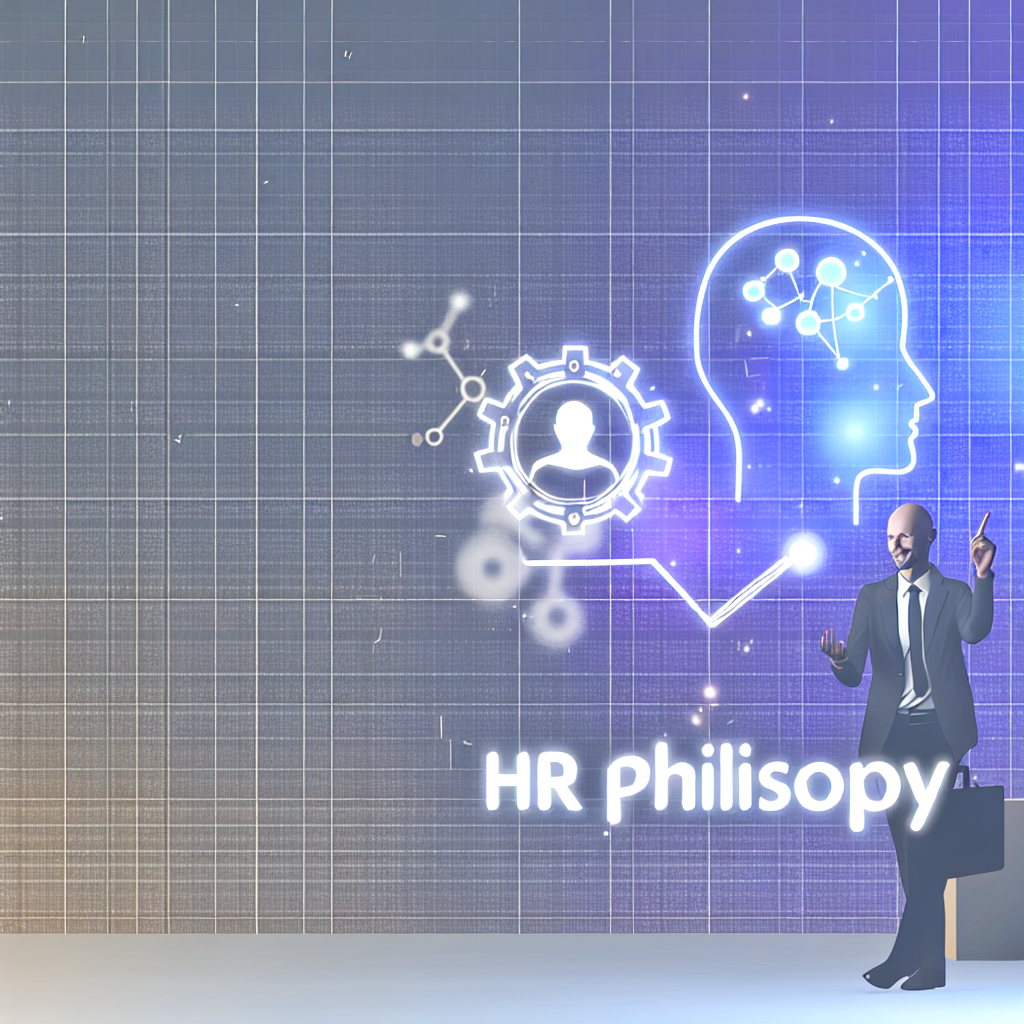
In today’s fast-paced and competitive industries, understanding the principles of HR philosophy is paramount for Human Resource professionals. An organisation’s HR philosophy acts as the compass for managing its workforce, influencing everything from employee relations to strategic alignment with business goals. In this post, we will explore what HR philosophy entails, its significance, current trends, and the myriad benefits it offers to organisations.
What is HR Philosophy?
HR philosophy refers to the core beliefs and assumptions organisations hold about people, shaping their approach to managing human resources. It encompasses a set of values, principles, and strategic frameworks tailored to cultivate a productive and engaging work environment. By establishing a clear HR philosophy, organisations create a cohesive strategy that aligns with overarching business aims.
Significance of HR Philosophy
Guiding Principles
The HR philosophy forms the bedrock of various employee management decisions, including recruitment, training, and development. By aligning HR practices with the organisation’s core values, HR professionals can ensure a unified approach to achieving business objectives. This alignment fosters consistency and clarity in executing HR strategies.
Employee Engagement
A well-articulated HR philosophy is critical in enhancing employee engagement levels. By setting clear expectations and promoting an inclusive work culture, HR leaders can encourage collaboration among employees, ultimately leading to increased job satisfaction and retention rates.
Strategic Alignment
Aligning HR practices with business strategy ensures that initiatives support the organisation’s goals. This alignment allows HR to play a strategic role, contributing actively to the business’s success and demonstrating human resources as a valuable asset rather than merely an operational function.
Current Trends in HR Philosophy
Employee-Centric Approach
Today, many organisations are shifting towards an employee-centric HR philosophy. This involves prioritising employee needs and well-being, fostering a culture where employees feel valued, respected, and empowered. Such a conducive environment nurtures creativity and innovation, benefiting both the employees and the organisation.
Inclusive and Diverse Workplace
Organisations that embrace inclusivity and diversity within their HR philosophy are recognising the value diverse perspectives bring to the table. These organisations are more likely to experience enhanced problem-solving and innovation, which stems from fostering a welcoming atmosphere for all employees, regardless of background.
Tech Integration
The integration of technology into HR practices is a growing trend. Digital platforms enhance communication, training, and performance management while streamlining operations. As HR departments leverage technology, employees gain access to tools that allow for improved collaboration and professional development opportunities.
Key Benefits of a Well-Defined HR Philosophy
Improved Productivity
The implementation of an HR philosophy focused on employee well-being and development can lead to elevated productivity levels. When employees feel supported and valued, they are more likely to perform at their best, contributing positively to the organisation’s objectives.
Enhanced Employee Retention
Creating a positive and supportive work environment is vital for retaining top talent. A strong HR philosophy helps cultivate an organisational culture that prioritises employee satisfaction, leading to higher retention rates and reduced turnover costs.
Effective Utilisation of Human Resources
A clear HR philosophy aligns workforce management practices with organisational goals, optimising the use of human resources. By clearly defining roles, expectations, and development pathways, HR professionals can maximise the potential of their teams, ultimately driving organisational success.
Developing and Implementing an Effective HR Philosophy
Creating a robust HR philosophy requires a well-thought-out approach. Here’s a step-by-step guide to help HR professionals embark on this journey:
1. Define Core Values
Begin by identifying the fundamental values that resonate with the organisation’s mission and vision. Engaging stakeholders across various levels of the organisation can provide valuable insights into what is important to employees and leaders alike.
2. Assess Current Practices
Conduct an evaluation of existing HR practices to identify areas for improvement. This assessment will help pinpoint gaps between current approaches and the desired HR philosophy, guiding necessary changes.
3. Engage Employees
Solicit feedback from employees at all levels to understand their experiences and expectations. Engaging employees during this phase promotes buy-in and increases the likelihood of successful implementation.
4. Design the HR Philosophy
With a clear understanding of core values and employee feedback, develop a detailed HR philosophy that outlines goals, guiding principles, and strategies for HR practices. This philosophy should be adaptable to changing business needs while remaining true to foundational values.
5. Communicate the Philosophy
Effectively communicating the new HR philosophy across the organisation is critical. Use various platforms to disseminate information, ensuring all employees understand how it impacts their roles and the organisation at large.
6. Monitor and Adjust
Once implemented, continuously monitor the effectiveness of the HR philosophy. Utilise employee feedback, performance metrics, and industry trends to make adjustments as necessary, ensuring the philosophy evolves along with the organisation.
Conclusion
In a rapidly changing work environment, having a defined HR philosophy is essential for organisations striving for success. By grounding HR practices in a strong set of values and principles, HR professionals can create more inclusive, productive, and engaged workplace cultures. This not only meets the needs of employees but also supports the overall organisational goals.
For further insights into the importance of HR philosophy, consider consulting resources such as Human Resource Development and Planning and Human Resource Planning and Audit.
By embracing a progressive HR philosophy, organisations not only empower their workforce but also enhance their overall business performance. The path to developing a thriving organisational culture begins with a deep understanding of HR philosophy. Let’s leverage these insights to build a more fulfilling work environment for all.
Vadim Kouznetsov is a distinguished entrepreneur and the visionary founder and CEO of JobXDubai.com, the UAE’s rapidly expanding job board. Renowned for his expertise in bridging the gap between job seekers and employment opportunities, Vadim has become a leading authority in the recruitment and job market of Dubai.
